MASTER DEGREE OF
INDONESIAN LANGUAGE EDUCATION
The basis for the preparation of the doctoral and master’s program curriculum at Postgraduate Program of UNJ refers to the level of the Indonesian National Qualification Framework (KKNI) level 8 for master’s programs and level 9 for doctoral programs in accordance with the Academic Handbook (CPA) of the Postgraduate Program of UNJ. Curriculum components in Postgraduate Program of UNJ consist of general courses, skills courses, elective courses, matriculation courses and thesis/dissertation. General Course is a general knowledge that underlies the formation of science development ability so that students are skilled in working in accordance with the basic science that have been mastered. General courses are directed at the formation of the ability to carry out, organize, and manage research programs in accordance with the educational objectives of the study program. General courses are obtained by students in the first semester.
General courses are given to students of all courses. Skills courses are a group of courses that aim to produce experts that work based on the knowledge and skills mastered. Skills courses are obtained by students in the second semester. Elective courses are part of a group of courses and Basic Courses of Education (MKDK). This course is chosen by students in accordance with the field of thesis studies and obtained in the third semester. Matriculation courses are a group of courses that must be taken by students with educational backgrounds who are not in line with the programs taken at Postgraduate Program of UNJ. Matriculation courses are obtained by students before the first semester begins. Thesis for master’s program, as well as dissertation for doctoral program.
Study Program Profile
The Language Education Study Program was one of the first courses opened when the Postgraduate Program of UNJ was established. Master’s Program of Language Education obtained operational license since 1993 with Decree of The Director General of Higher Education Ministry of Education No. 590/ DIKTI / Kep / 1993 with the name of Master’s of Language Education Study Program. Graduated with master’s degree in Language Education (M.Pd). Input Master’s Program of Language Education is a bachelor of education from various languages such as Indonesian, English, German, French, Arabic, Japanese, Mandarin, Regional, and other foreign languages. Based on the results of tracer studies conducted, undergraduate graduates have mastered the subject of the target language. In order to meet the needs of higher levels, the Master of Language Education Program specializes in language education science covering all existing language languages.
As the only state language education study program in the capital city of Jakarta, the Master’s Program of Language Education has uniqueness and attractiveness because it is able to accommodate various language education backgrounds, both Indonesian, regional, and foreign. Graduates who are mostly language educators require further study to the master’s level. Therefore, the Master’s program of Language Education is a forum for Graduates of Language Education to develop their competencies as teachers and educators in the field of language education, especially for those who work as educators in the Capital of Indonesia.
The establishment of language education is based on the Constitution of 1945 Article 35 which places Indonesian as an official language whose existence and sustainability must be maintained and fostered. Language development is an effort to improve the quality of language use through language learning at all types and levels of education and language correction to various levels of society. The basis of the constitution for the use of this language is further explained in Law No. 24 of 2009 in Chapter III, Article 25 to Article 45.
The establishment of language education is based on the Constitution of 1945 Article 35 which places Indonesian as an official language whose existence and sustainability must be maintained and fostered. Language development is an effort to improve the quality of language use through language learning at all types and levels of education and language correction to various levels of society. The basis of the constitution for the use of this language is further explained in Law No. 24 of 2009 in Chapter III, Article 25 to Article 45.
Like the two sides of a coin, the arrangement of The Indonesian language as the language of the country, is certainly related to the regulation of regional languages and foreign languages. The function and position of Indonesian language, regional language, and foreign language is contained in Government Regulation No. 57 of 2014. The function and position of the use of regional languages and foreign languages is a complement to the regulation on The Indonesian language that is required in the implementation of national education in Indonesia. Regional languages may be used in the early stages of education to convey certain knowledge and skills. Similarly, foreign languages can also be used as an introductory language to support the acquisition of foreign language proficiency of learners. Both regional and foreign languages have the supporting function of Indonesian as the main language of instruction in the national education system.
The urgency of Indonesian language, regional language, and foreign language in the national education system encourages UNJ to organize and develop a modern and advanced Language Education Study Program in an effort to produce graduates who are proficient in understanding, developing, and applying ethical and moral language education; organizing and developing competitive, modern, and advanced language education, based on science and technology in accordance with the development of society.
Teaching Staffs
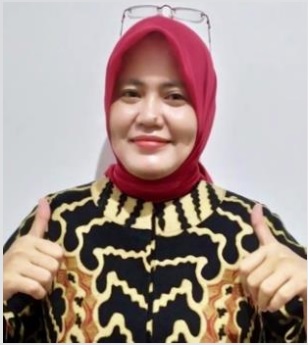
Dr. Miftahulkhairah Anwar, S.S., M.Hum., M.Phil.
Coordinator of Language Education Study Program
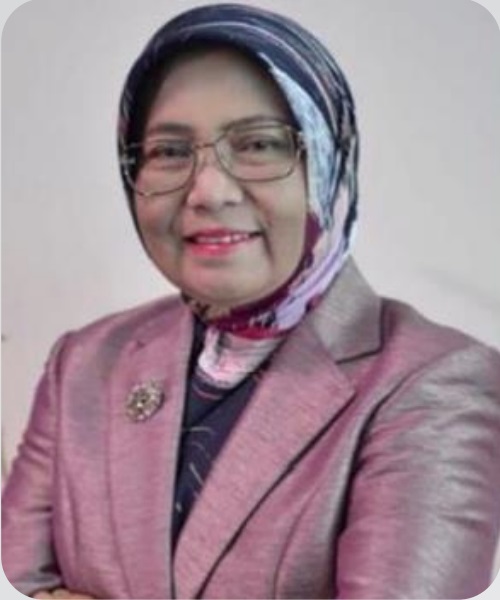
Prof. Dr. llza Mayuni, M.App.Ling.
Professor in language education
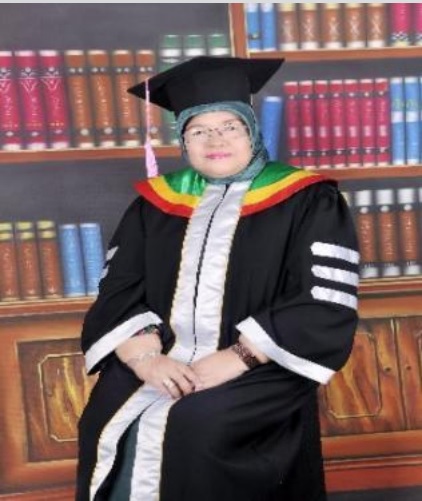
Prof. Dr. Yumna Rasyid, M.Pd.
Morphology and Arabic Syntax, Curriculum Development and Language Teaching Materials, Discourse Analysis.
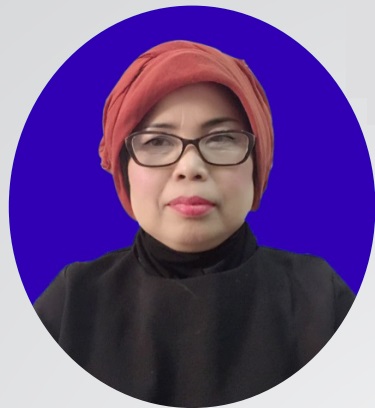
Prof. Dr. Endry Boeriswati, M.Pd.
Professor in language education
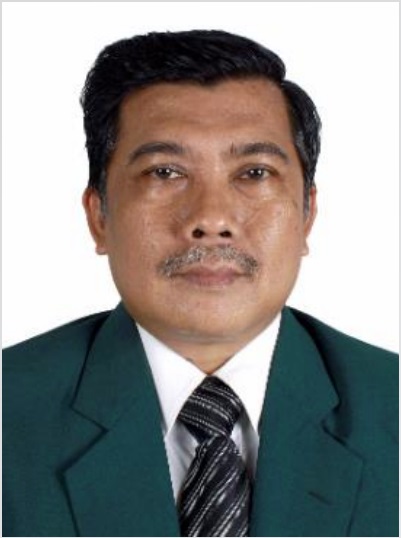
Prof. Dr. Aceng Rahmat, M.Pd.
Professor in language education
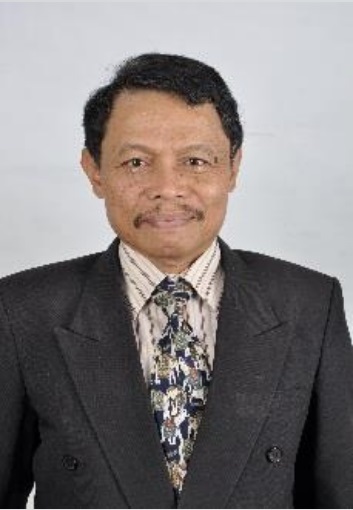
Prof. Dr. Zainal Rafli, M.Pd.
Methodology of Language Learning, Evaluation of Language Learning, Psycholinguistics / Sociolinguistics
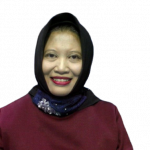
Prof. Dr. Novi Anoegrajekti, M.Hum.
Professor in language education and literature
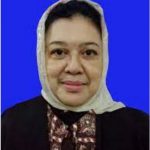
Dr. Fathiaty Murtadho, M.Pd
Indonesian language and literature education
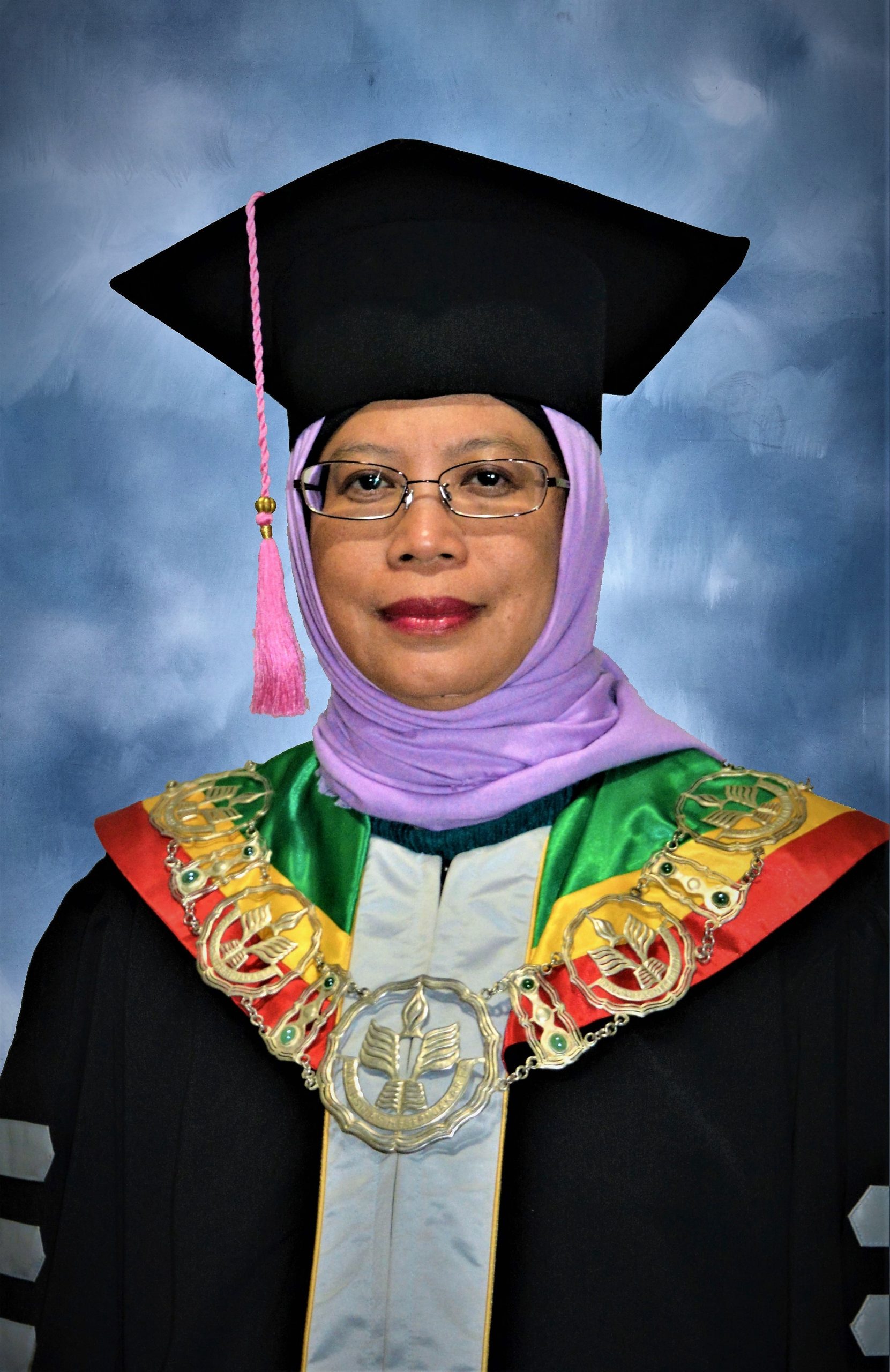
Dr. Liliana Muliastuti, M.Pd
BIPA Teaching, General Linguistics, Error Analysis Psycholinguistics, Semantics, Curriculum and Teaching Material Development
Objectives
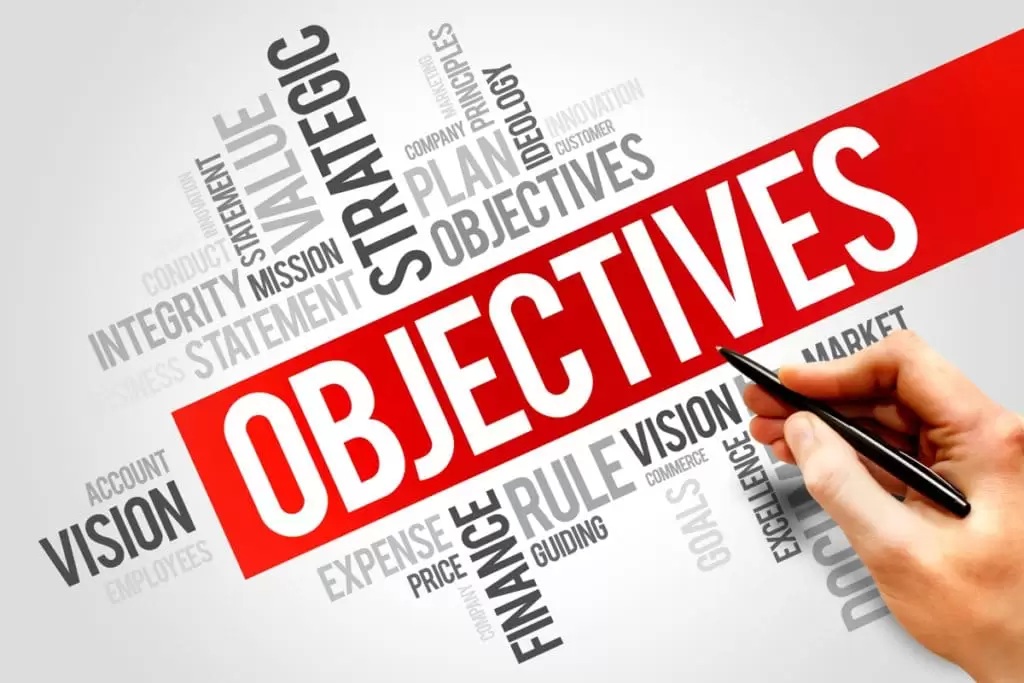
- Able to develop knowledge in the field of language education and literature through research so as to produce innovative and tested work.
- Able to produce innovative and tested problem solving through interdisciplinary and multidisciplinary approaches in the field of language and literature education.
- Able to apply the results of research in the field of language and literature education in accordance with the demands of the development of the latest information and communication technology through interdisciplinary or multidisciplinary research in order to be able to compete in the global level.
- Able to manage research results in the field of language and literature education so as to gain national and international recognition.
Curriculum & Courses
The curriculum component of the master program contains the following.
- General Course is a general knowledge that underlies the formation of science development ability so that skilled in working in accordance with the basic science mastered. General courses are directed at the formation of the ability to carry out, organize, and manage research programs in accordance with the objectives of master’s program education. General courses must be mastered by each master’s program participant of the entire study
- Expertise Courses is a group of courses aimed at producing experts with work based on the knowledge and skills
- Elective Courses are part of the Study Program and Basic Subjects group of This course is chosen by students in accordance with the field of thesis studies.
- Matriculation Course is a group of courses that must be taken by students who come from non-educational programs and educational programs that are not a plot. This course provides the basis of educational knowledge that must be mastered as a reference for mastery of educational theories.
- Thesis preparation is a design that contains supporting courses in preparing the final task of thesis or scientific work with the aim of constructing theory and experience so that the final task of the thesis to be made can be carried out
- Thesis is the result of scientific work based on the result of research that meets the criteria of scientific research and discipline of the study program as an effort to solve problems and disclosure of a scientific finding or development of a new concept.
Program Learning Outcomes
- PLO General Courses, Colloquial, Thesis, 1) Able to develop new knowledge about the theory of pedagogy, literacy, the benefits of technology and/or new art in the master’s program expertise, to produce solutions for improving the quality of life of society, nation and state through interdisciplinary and / or multidisciplinary approaches. 2) Able to master the theory and theory of application of the field of knowledge master’s program. 3) Able to solve problems of science, technology and/or related to arts in the field of master’s programs based on pedagogy theory, literacy, information technology through scientific methods with an interdisciplinary or multidisciplinary approach that internalizes academic values, norms, and ethics; 4) Able to develop research and development that is beneficial for the science of master’s programs and the benefit of mankind, and able to get national and international recognition.
- PLO Expertise Courses and Elective Courses, 1) Able to develop new knowledge about the theory of pedagogy, literacy, the benefits of technology and or new art in doctoral programs, to produce solutions for improving the quality of life of society,nation and state through interdisciplinary or multidisciplinary approaches; 2) Able to develop science program master or professional practice through research; 3) Able to solve problems of science, technology and or related arts in the field of master’s programs based on the theory of pedagogy, literacy, information technology through scientific methods with an interdisciplinary or multidisciplinary approach; 4) Develop new theories in innovative learning by applying didactic- pedagogical concepts and principles by utilizing science and technology oriented on life skills and contributing to improve the quality of life of society; 5) Gaining national and international recognition in his/her profession on an ongoing basis by conducting research as a reflective and evaluative action.
- Program Learning Outcome Master’s of Language Education Program, 1) Able to develop theories of pedagogy, linguistics, literature, culture, and literacy, with the benefits of information technology in language and literary education, in improving the quality of education for human benefit through interdisciplinary and multidisciplinary approaches. 2) Able to apply logical, critical, systematic, and innovative thinking in the field of language and literature education to find a solution that benefits the sustainable welfare of society. 3) Able to solve the problem of language and literary education to develop a variety of alternative solutions through scientifically tested methods with an interdisciplinary or multidisciplinary approach based on academic values, norms, and ethics. 4) Able to apply solutions as a solution to the problem of language and literary education in accordance with the needs of language and literary education development through tested and current research, as well as gaining recognition at the national and international levels. 5) Able to develop innovative learning by applying didactic-pedagogical concepts and principles in language and literature education by utilizing science and technology oriented on life skills and contributing to improve the quality of education. 6) Able to apply professionalism continuously in the field of language and literature education by conducting research as a reflective, evaluative, and program development action. 7) Able to disseminate research results in the field of language education and literature is current with an interdisciplinary and multidisciplinary approach recognized by the language and literature education community at the national and international level.
Graduate Profile
- Language and literature educators
Able to develop adaptive and relevant models of language and literature learning with the development of science and technology, multiculturalism, and nationality through an interdisciplinary or multidisciplinary approach that is proven and recognized at the national and international level. - Language and Literature Education Researchers
Able to develop language education research to produce solutions to solve problems of adaptive language and literary education relevant to the development of science and technology, multiculturalism, and nationality through an interdisciplinary or multidisciplinary approach that proven and recognized at the national and international level.
- Developer of language and literature education
Able to develop the model of the results of language and literature education research as a solution to solve problems of adaptive language and literary education relevant to the development of science and technology, multicultural, and nationality through an interdisciplinary or multidisciplinary approach proven and recognized at the national and international level. - Entrepreneurship in Language and Literature Education
Able to develop the creative industry of language and literary education as a solution to solve problems of adaptive language and literary education relevant to the development of science and technology, multiculturalism, and nationality through an interdisciplinary or multidisciplinary approach is proven and recognized at the national and international level.
